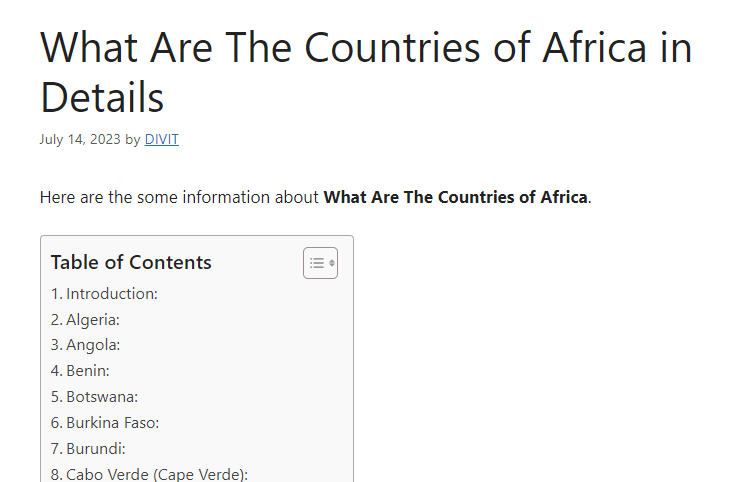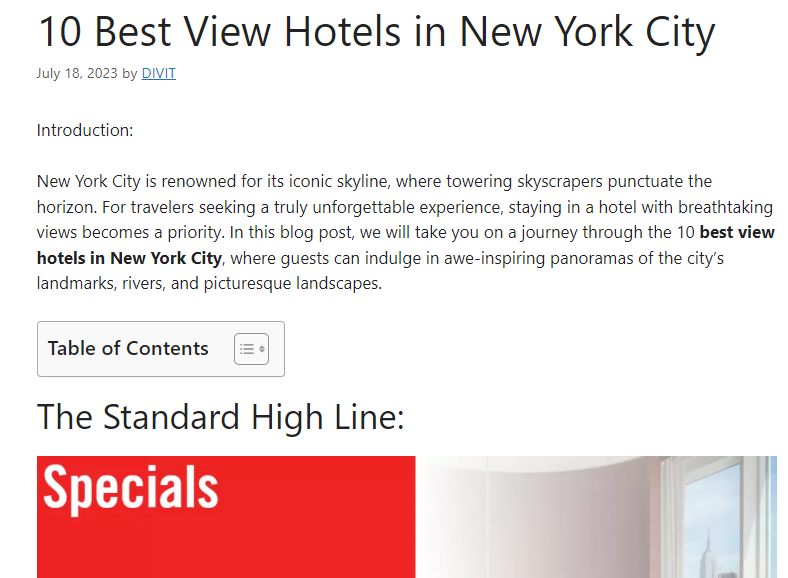Here are the some information about What Are The Countries of Africa.
Introduction:
Africa, a continent of immense beauty, diversity, and cultural heritage, is home to a plethora of countries that showcase the richness and complexity of the continent. From the vast deserts of the Sahara to the lush rainforests of Central Africa, Africa’s countries offer a captivating blend of landscapes, history, and traditions. In this comprehensive article, we embark on a journey to explore each country in Africa, shedding light on their geographical locations, capitals, major attractions, and cultural significance.
Algeria:
Located in North Africa, Algeria is the largest country on the continent. Its capital and largest city is Algiers. Algeria boasts a remarkable diversity of landscapes, including the Sahara Desert, the Atlas Mountains, and the Mediterranean coastline. Visitors can explore the ancient Roman ruins of Timgad, the vibrant city of Oran, and the picturesque coastal town of Tipaza.
Angola:
Situated in Southern Africa, Angola is known for its rich natural resources and cultural heritage. The capital and largest city is Luanda. Angola offers breathtaking landscapes such as the Kalandula Falls, the Namib Desert, and the Iona National Park. Cultural highlights include the colonial architecture of Benguela and the traditional music and dance forms of the Kimbundu and Mbundu people.
Benin:
Located in West Africa, Benin is renowned for its fascinating history and vibrant traditions. The capital and largest city is Porto-Novo, although Cotonou serves as the economic and administrative center. Benin is home to the historic royal palaces of Abomey, the unique Ganvie stilt village, and the lush Pendjari National Park, known for its diverse wildlife.
Botswana:
Situated in Southern Africa, Botswana is a landlocked country known for its commitment to wildlife conservation and ecotourism. The capital and largest city is Gaborone. Botswana boasts iconic destinations like the Okavango Delta, a UNESCO World Heritage Site, where visitors can embark on thrilling safaris. Other attractions include the Chobe National Park, the Makgadikgadi Pans, and the stunning landscapes of the Central Kalahari Game Reserve.
Burkina Faso:
Located in West Africa, Burkina Faso is a country with a rich cultural heritage and vibrant arts scene. The capital and largest city is Ouagadougou. Travelers can immerse themselves in the vibrant markets and traditional music of Ouagadougou, explore the enchanting Sindou Peaks, and visit the Ruins of Loropéni, a UNESCO World Heritage Site.
Burundi:
Situated in East Africa, Burundi is a small landlocked country known for its stunning landscapes and rich history. The capital and largest city is Bujumbura. Lake Tanganyika, one of the largest and deepest lakes in the world, offers opportunities for relaxation and water-based activities. The Rusizi National Park and the Kibira National Park are havens for nature enthusiasts, showcasing the country’s biodiversity.
Cabo Verde (Cape Verde):
Located off the coast of West Africa, Cabo Verde is an archipelago comprising ten volcanic islands. The capital and largest city is Praia. Cabo Verde offers stunning beaches, crystal-clear waters, and a vibrant music scene. Visitors can explore the volcanic landscapes of Fogo Island, enjoy water sports in Sal, and experience the unique blend of Portuguese and African cultures.
Cameroon:
Situated in Central Africa, Cameroon is known for its geographical and cultural diversity. The capital and largest city is Yaoundé. Mount Cameroon, the highest peak in West Africa, attracts hikers and climbers from around the world. The Waza National Park and the Limbe Wildlife Centre showcase the country’s rich biodiversity. Cameroon is also famous for its vibrant music scene, with genres like makossa and bikutsi gaining international recognition.
Central African Republic:
Located in Central Africa, the Central African Republic (CAR) is a country known for its untamed wilderness and diverse ethnic groups. The capital and largest city is Bangui. CAR offers opportunities for wildlife enthusiasts with its national parks, including the Dzanga-Sangha National Park and Manovo-Gounda St Floris National Park. The country also presents a chance to encounter the unique BaAka pygmy culture.
Chad:
Situated in Central Africa, Chad is a landlocked country known for its Saharan landscapes and cultural heritage. The capital and largest city is N’Djamena. Chad offers the breathtaking Ennedi Plateau, known for its rock formations and ancient cave paintings. Zakouma National Park is home to diverse wildlife, including elephants and giraffes. Visitors can also experience the rich traditions of the indigenous Sara and Kanem-Bornu peoples.
Comoros:
Located off the eastern coast of Africa, the Comoros is an archipelago renowned for its volcanic islands and rich marine biodiversity. The capital and largest city is Moroni. The Comoros Islands offer pristine beaches, excellent diving opportunities, and a chance to explore volcanic landscapes. The historic Old Friday Mosque in Moroni stands as a testament to the country’s cultural heritage.
Congo (Republic of the):
Situated in Central Africa, the Republic of the Congo, often referred to as Congo-Brazzaville, is known for its lush rainforests and vibrant culture. The capital and largest city is Brazzaville. The Republic of the Congo offers opportunities for ecotourism, with attractions like Odzala-Kokoua National Park, Nouabalé-Ndoki National Park, and the Lesio-Louna Gorilla Reserve.
Congo (Democratic Republic of the):
Sharing borders with multiple countries in Central and Southern Africa, the Democratic Republic of the Congo (DRC) is the largest country in sub-Saharan Africa. The capital and largest city is Kinshasa. The DRC is known for its vast rainforests, the Congo River, and its incredible biodiversity. Visitors can explore the stunning Virunga National Park, home to endangered mountain gorillas, and experience the cultural richness of indigenous communities.
Côte d’Ivoire (Ivory Coast):
Located in West Africa, Côte d’Ivoire is a country renowned for its cultural heritage, cocoa production, and beautiful coastline. The capital and largest city is Yamoussoukro, while Abidjan serves as the economic capital. Côte d’Ivoire offers a range of attractions, including the colonial architecture of Grand-Bassam, the beaches of Assinie, and the Taï National Park, a UNESCO World Heritage Site.
Djibouti:
Located in the Horn of Africa, Djibouti is a small country known for its strategic location and unique landscapes. The capital and largest city is Djibouti City. Djibouti offers attractions such as Lake Assal, the lowest point in Africa and the third saltiest lake globally. The otherworldly landscapes of Lac Abbé and the Day Forest National Park further contribute to Djibouti’s allure.
Egypt:
Situated in North Africa, Egypt is a country steeped in ancient history and renowned for its iconic landmarks. The capital and largest city is Cairo. Egypt’s archaeological treasures include the Great Pyramids of G
iza, the Sphinx, the Valley of the Kings, and the temples of Luxor and Abu Simbel. The country also offers a chance to cruise the majestic Nile River and explore the vibrant bazaars of Cairo.
Equatorial Guinea:
Located in Central Africa, Equatorial Guinea is known for its oil reserves, rich biodiversity, and cultural heritage. The capital and largest city is Malabo. Visitors can explore Bioko Island, with its stunning beaches and wildlife, including monkeys and sea turtles. Monte Alén National Park showcases the country’s unique flora and fauna, while Bata offers a chance to experience the fusion of Spanish and African cultures.
Eritrea:
Situated in the Horn of Africa, Eritrea is a country with a rich history and diverse landscapes. The capital and largest city is Asmara. Eritrea offers attractions such as the Dahlak Archipelago, known for its crystal-clear waters and vibrant marine life. The ancient city of Aksum, a UNESCO World Heritage Site, showcases the remnants of the Aksumite civilization. Asmara’s unique architecture and vibrant markets add to the country’s charm.
Eswatini (formerly Swaziland):
Located in Southern Africa, Eswatini is a country known for its stunning scenery and rich cultural heritage. The capital and largest city is Mbabane. Eswatini offers attractions such as Hlane Royal National Park, known for its rhinos and elephants, and Mlilwane Wildlife Sanctuary, where visitors can enjoy guided walks and game drives. The vibrant traditional festivals, such as the Reed Dance, provide a glimpse into Eswatini’s cultural traditions.
Ethiopia:
Situated in the Horn of Africa, Ethiopia is a country of ancient history, diverse landscapes, and vibrant traditions. The capital and largest city is Addis Ababa. Ethiopia is home to UNESCO World Heritage sites such as Lalibela, known for its rock-hewn churches, and the Simien Mountains National Park, famous for its stunning mountain scenery and unique wildlife. The Omo Valley offers a chance to encounter various indigenous tribes and experience their rich cultural heritage.
Gabon:
Located in Central Africa, Gabon is known for its pristine rainforests and diverse wildlife. The capital and largest city is Libreville. Gabon offers attractions such as Loango National Park, where visitors can witness elephants and hippos on the beach. The Lopé National Park, a UNESCO World Heritage Site, showcases the country’s biodiversity, including gorillas and forest elephants.
Gambia:
Situated in West Africa, The Gambia is a small country known for its vibrant culture, welcoming people, and stunning riverine landscapes. The capital and largest city is Banjul. The Gambia River provides opportunities for river cruises and bird-watching, while the Abuko Nature Reserve allows visitors to encounter various species of primates and birds. The country’s vibrant music scene and traditional wrestling tournaments are expressions of its cultural identity.
Ghana:
Located in West Africa, Ghana is a country known for its rich history, cultural heritage, and stunning coastline. The capital and largest city is Accra. Ghana offers a range of attractions, including the UNESCO-listed forts and castles along the Cape Coast, the vibrant markets of Kumasi, and the picturesque landscapes of Lake Volta and Kakum National Park. Visitors can also immerse themselves in the unique Kente weaving tradition and vibrant festivals such as the Homowo and Aboakyer.
Guinea:
Situated in West Africa, Guinea is a country known for its natural resources, diverse ethnic groups, and vibrant music scene. The capital and largest city is Conakry. Guinea offers attractions such as the Fouta Djallon highlands, known for their scenic beauty and waterfalls. The Îles de Los National Park, a collection of small islands, provides opportunities for beach relaxation and water sports. The country’s traditional music, including the rhythms of the djembe drum, resonates with its cultural identity.
Guinea-Bissau:
Located in West Africa, Guinea-Bissau is known for its rich cultural heritage, biodiversity, and picturesque islands. The capital and largest city is Bissau. The Bijagós Archipelago, a UNESCO Biosphere Reserve, offers pristine beaches, mangrove forests, and opportunities to observe marine turtles. Guinea-Bissau’s vibrant music and dance forms, such as gumbe and kora, reflect the country’s cultural diversity.
Kenya:
Located in East Africa, Kenya is a country renowned for its diverse wildlife, stunning landscapes, and vibrant culture. The capital and largest city is Nairobi. Kenya offers iconic destinations such as Maasai Mara National Reserve, known for the annual wildebeest migration, and Amboseli National Park, famous for its views of Mount Kilimanjaro. Visitors can also explore the Great Rift Valley, the pristine beaches of Mombasa, and the vibrant markets of Nairobi.
Lesotho:
Situated within South Africa, Lesotho is a small mountainous country known as the “Kingdom in the Sky.” The capital and largest city is Maseru. Lesotho offers opportunities for adventure tourism, including hiking, horse riding, and skiing in the winter months. The mountainous landscapes, including the iconic Drakensberg and Maloti mountain ranges, create a breathtaking backdrop for travelers.
Liberia:
Located in West Africa, Liberia is a country known for its unique history, diverse ethnic groups, and stunning coastline. The capital and largest city is Monrovia. Liberia offers attractions such as Sapo National Park, one of the largest remaining areas of primary rainforest in West Africa. The beautiful beaches of Robertsport and the historic Providence Island showcase the country’s natural and cultural assets.
Libya:
Situated in North Africa, Libya offers a rich history and breathtaking desert landscapes. The capital and largest city is Tripoli. Libya’s attractions include the ancient Roman ruins of Leptis Magna and Sabratha, the Sahara Desert, and the stunning landscapes of the Akakus Mountains. Visitors can also experience the vibrant markets of Tripoli and sample traditional Libyan cuisine.
Madagascar:
Located off the eastern coast of Africa, Madagascar is an island country known for its unique wildlife and biodiversity. The capital and largest city is Antananarivo. Madagascar offers a range of attractions, including the otherworldly landscapes of Tsingy de Bemaraha National Park, the tropical rainforests of Ranomafana National Park, and the beautiful beaches of Nosy Be. The country’s lemurs, baobab trees, and colorful chameleons are among its most famous natural treasures.
Malawi:
Situated in Southern Africa, Malawi is known as the “Warm Heart of Africa” due to the friendliness of its people. The capital and largest city is Lilongwe. Malawi offers attractions such as Lake Malawi, one of Africa’s Great Lakes, renowned for its crystal-clear waters and diverse aquatic life. The country’s national parks, including Liwonde and Nyika, provide opportunities for wildlife encounters, while the breathtaking landscapes of the Zomba Plateau attract hikers and nature lovers.
Mali:
Located in West Africa, Mali is known for its rich history, architectural wonders, and vibrant music traditions. The capital and largest city is Bamako. Mali offers attractions such as the ancient city of Timbuktu, a UNESCO World Heritage Site, the mud-brick mosques of Djenn
é, and the Bandiagara Escarpment, home to the Dogon people. The country’s vibrant music scene, influenced by traditional instruments like the kora and balafon, has gained international recognition.
Mauritania:
Situated in Northwest Africa, Mauritania is a country known for its vast deserts and unique cultural heritage. The capital and largest city is Nouakchott. Mauritania offers attractions such as the ancient trading town of Chinguetti, a UNESCO World Heritage Site, and the stunning dunes of the Banc d’Arguin National Park. The country’s rich Moorish traditions, including music, dance, and hospitality, provide a glimpse into its cultural identity.
Mauritius:
Located in the Indian Ocean, Mauritius is an island nation known for its stunning beaches, coral reefs, and luxury resorts. The capital and largest city is Port Louis. Mauritius offers a range of attractions, including the beautiful beaches of Flic en Flac and Trou aux Biches, the multicultural capital of Port Louis, and the scenic landscapes of Black River Gorges National Park. Visitors can also explore the vibrant markets, indulge in delicious Creole cuisine, and experience the hospitality of the Mauritian people.
Morocco:
Situated in North Africa, Morocco offers a vibrant blend of Arab, Berber, and European influences. The capital is Rabat, but the largest city is Casablanca. Morocco’s attractions include the bustling souks and medinas of cities like Marrakech and Fez, the majestic Atlas Mountains, the Sahara Desert, and the charming blue city of Chefchaouen. Visitors can also experience traditional Moroccan cuisine, explore historic sites like the Roman ruins of Volubilis, and enjoy the vibrant music and dance forms such as gnawa and raï.
Mozambique:
Located in Southeast Africa, Mozambique is known for its stunning coastline, vibrant marine life, and rich cultural heritage. The capital and largest city is Maputo. Mozambique offers attractions such as the idyllic beaches of Bazaruto Archipelago, the UNESCO World Heritage Site of Ilha de Mozambique, and Gorongosa National Park, known for its wildlife conservation efforts. The country’s blend of Portuguese, Arab, and African influences is reflected in its cuisine, music, and art.
Namibia:
Situated in Southern Africa, Namibia is renowned for its dramatic desert landscapes, abundant wildlife, and vibrant indigenous cultures. The capital and largest city is Windhoek. Namibia’s attractions include the iconic red dunes of Sossusvlei, the ancient rock art of Twyfelfontein, the Etosha National Park, and the Fish River Canyon, one of the largest canyons in the world. Visitors can also experience the traditions of the Himba and San communities, as well as the German colonial influence seen in the architecture and cuisine.
Niger:
Located in West Africa, Niger is a landlocked country known for its desert landscapes, vibrant festivals, and nomadic cultures. The capital and largest city is Niamey. Niger offers attractions such as the Aïr Mountains, home to the stunning oasis town of Agadez, and the W National Park, a UNESCO World Heritage Site. The country’s cultural traditions, including the Gerewol festival of the Wodaabe people, provide a glimpse into Niger’s rich cultural tapestry.
Nigeria:
Situated in West Africa, Nigeria is the most populous country in Africa, known for its diverse cultures, vibrant music, and literary traditions. The capital is Abuja, while the largest city is Lagos. Nigeria offers a range of attractions, including the historic city of Ile-Ife, the Yankari National Park, and the breathtaking landscapes of Obudu Cattle Ranch. Visitors can also immerse themselves in the country’s music scene, with genres like Afrobeat gaining global recognition, and explore the bustling markets and street food culture.
Rwanda:
Located in East Africa, Rwanda is known for its remarkable recovery from the tragic genocide of 1994 and its commitment to conservation. The capital and largest city is Kigali. Rwanda offers attractions such as the Volcanoes National Park, home to endangered mountain gorillas, and Akagera National Park, where visitors can spot diverse wildlife. The country’s vibrant culture, exemplified by the traditional dance form of Intore, showcases the resilience and unity of the Rwandan people.
São Tomé and Príncipe:
Situated in the Gulf of Guinea, São Tomé and Príncipe is an island nation known for its pristine beaches, lush rainforests, and rich biodiversity. The capital and largest city is São Tomé. São Tomé and Príncipe offer attractions such as Obo National Park, where visitors can explore dense forests and encounter endemic bird species. The country’s vibrant music and unique blend of Portuguese and African influences are reflected in its culture and cuisine.
Senegal:
Located in West Africa, Senegal is known for its vibrant music, rich history, and warm hospitality. The capital and largest city is Dakar. Senegal offers attractions such as the historic island of Gorée, a UNESCO World Heritage Site, the stunning landscapes of the Pink Lake (Lac Rose), and the vibrant markets of Saint-Louis. The country’s musical traditions, including mbalax and griot storytelling, have influenced artists worldwide.
Seychelles:
Situated in the Indian Ocean, Seychelles is an archipelago known for its pristine beaches, coral reefs, and luxury resorts. The capital and largest city is Victoria. Seychelles offers a range of attractions, including the breathtaking beaches of Anse Lazio and Anse Source d’Argent, the Vallée de Mai Nature Reserve, home to the unique coco de mer palm, and the Aldabra Atoll, a UNESCO World Heritage Site. The country’s Creole culture and cuisine further enhance the Seychelles experience.
Sierra Leone:
Located in West Africa, Sierra Leone is known for its vibrant cultural heritage, stunning beaches, and natural wonders. The capital and largest city is Freetown. Sierra Leone offers attractions such as the beautiful beaches of Tokeh and Banana Islands, the Tacugama Chimpanzee Sanctuary, and the Tiwai Island Wildlife Sanctuary. The country’s traditions, including the energetic dance form of the “Bubu” and the unique Krio language, reflect its diverse ethnic groups and history.
Somalia:
Situated in the Horn of Africa, Somalia offers a rich history, diverse landscapes, and a vibrant nomadic culture. The capital and largest city is Mogadishu. Somalia’s attractions include the historic port city of Merca, the beautiful beaches of Berbera, and the ancient rock art of Las Geel. Visitors can also explore the vibrant markets, experience traditional Somali cuisine, and immerse themselves in the Somali music and poetry traditions.
South Africa:
Located at the southern tip of Africa, South Africa is a country known for its diverse landscapes, wildlife, and multicultural society. The legislative capital is Cape Town, the administrative capital is Pretoria, and the largest city is Johannesburg. South Africa offers iconic destinations such as Table Mountain, Kruger National Park, the Cape Winelands, and the scenic Garden Route. The country’s cultural richness is showcased through its vibrant music, traditional ceremonies, and diverse cuisine.
South Sudan:
Situated in East-Central Africa, South Sudan is the youngest country in Africa, gaining independence in 2011. The capital and largest
city is Juba. South Sudan offers diverse landscapes, including the vast wetlands of the Sudd, the Boma National Park, and the Nimule National Park, known for its elephant populations. The country’s cultural traditions, expressed through storytelling, dance, and wrestling, reflect the heritage of its diverse ethnic groups.
Sudan:
Located in North-East Africa, Sudan is a country known for its ancient civilizations, archaeological sites, and cultural heritage. The capital and largest city is Khartoum. Sudan’s attractions include the ancient pyramids of Meroe, a UNESCO World Heritage Site, the Nubian Desert, and the vibrant markets of Omdurman. The country’s diverse ethnic groups contribute to its rich cultural tapestry, evident in its music, traditional ceremonies, and cuisine.
Eswatini (formerly Swaziland):
Located in Southern Africa, Eswatini (formerly known as Swaziland) is known for its stunning landscapes and rich cultural heritage. The capital and largest city is Mbabane. Eswatini offers attractions such as the Hlane Royal National Park, where visitors can encounter rhinos and elephants, and the Mlilwane Wildlife Sanctuary, known for its hiking trails and diverse wildlife. The country’s vibrant traditional festivals, such as the Reed Dance and Incwala, provide insights into Eswatini’s cultural traditions.
Tanzania:
Situated in East Africa, Tanzania is known for its diverse landscapes, wildlife, and iconic landmarks. The capital and largest city is Dodoma, while the economic hub is Dar es Salaam. Tanzania offers a range of attractions, including the Serengeti National Park, famous for the Great Migration, Mount Kilimanjaro, the highest peak in Africa, and the stunning beaches of Zanzibar. The country’s rich cultural heritage is reflected in the traditions of its various ethnic groups, such as the Maasai and Swahili.
Togo:
Located in West Africa, Togo is known for its vibrant culture, palm-fringed beaches, and colonial-era architecture. The capital and largest city is Lomé. Togo offers attractions such as the historic city of Koutammakou, a UNESCO World Heritage Site, and the picturesque beaches of Aného and Togoville. The country’s vibrant music, including the rhythms of the Ewe and Kabiyé peoples, adds to its cultural allure.
Tunisia:
Situated in North Africa, Tunisia is a country known for its ancient ruins, vibrant medinas, and stunning coastline. The capital and largest city is Tunis. Tunisia’s attractions include the ancient Roman ruins of Carthage and Dougga, the Sahara Desert, and the charming blue-and-white village of Sidi Bou Said. The country’s cultural heritage, seen in its traditional music, cuisine, and festivals, reflects the influences of Berber, Arab, and Mediterranean cultures.
Uganda:
Located in East Africa, Uganda is known as the “Pearl of Africa” due to its stunning landscapes and diverse wildlife. The capital and largest city is Kampala. Uganda offers attractions such as the Bwindi Impenetrable National Park, home to endangered mountain gorillas, and the Murchison Falls National Park, known for its spectacular waterfall and wildlife. The country’s cultural traditions, including vibrant dance forms like the Kiganda and Acholi, contribute to its rich cultural fabric.
Zambia:
Situated in Southern Africa, Zambia is known for its magnificent waterfalls, vast national parks, and diverse wildlife. The capital and largest city is Lusaka. Zambia offers attractions such as Victoria Falls, one of the Seven Natural Wonders of the World, the South Luangwa National Park, and the Lower Zambezi National Park. The country’s cultural traditions, expressed through music, dance, and storytelling, showcase the heritage of its various ethnic groups.
Zimbabwe:
Located in Southern Africa, Zimbabwe is known for its breathtaking landscapes, iconic archaeological sites, and diverse wildlife. The capital and largest city is Harare. Zimbabwe offers attractions such as the majestic Victoria Falls, the ancient ruins of Great Zimbabwe, and the wildlife-rich Hwange National Park. The country’s traditional music, vibrant markets, and Shona stone sculptures contribute to its cultural vibrancy.
- Also Read more story on : story views
- Also read more : Places to visit in United States of America
Conclusion:
Africa, with its diverse countries and rich cultural heritage, is a continent that captivates and enthralls. From the vast deserts and lush rainforests to the vibrant music and traditions, each country in Africa has its unique story to tell. Whether you’re exploring the ancient wonders of Egypt, embarking on a safari in Kenya, or relaxing on the stunning beaches of Seychelles, Africa offers a multitude of experiences that will leave a lasting impression. Embrace the beauty, history, and diversity of Africa’s countries and discover the wonders that await you on this captivating continent. This is the answer of the “what are the countries of africa”.















Pingback: 50 Places to visit in United States of America